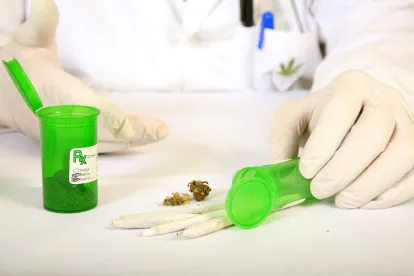The Ohio medical marijuana market saw a robust start to sales on January 16, 2019. First-day sales totaled more than $75,000, per the state’s Medical Marijuana Control Program, and total sales exceeded $330,000 in the first several weeks. This initial sales boom is magnified by the fact that only five of the 50-plus state-approved provisional dispensaries are operational (and only four on the initial date of sales).
Patients wishing to participate in Ohio’s medical marijuana program must establish and maintain a bona fide physician-patient relationship with a certified physician, who can only recommend (not prescribe) up to a 90-day supply of medical marijuana with three refills (totaling up to a 360-day supply). Further, these recommendations are limited to patients with the following medical conditions:
- AIDS
- Amyotrophic lateral sclerosis
- Alzheimer’s
- Cancer
- Chronic traumatic encephalopathy
- Crohn’s disease
- Epilepsy (or another seizer disorder)
- Fibromyalgia
- Glaucoma
- Hepatitis C
- Inflammatory bowel disease
- Multiple sclerosis
- Pain that is either chronic and severe or intractable
- Parkinson’s disease
- HIV
- PTSD
- Sickle cell anemia
- Spinal cord disease/injury
- Tourette’s syndrome
- Traumatic brain injury
- Ulcerative colitis
The product may be ingested in a vaporized format, eaten, or taken as a liquid extract – it is not to be smoked.
The cost to participate in the program for a patient is a $50 annual registration fee outside of the cost of purchasing the product, which raises an interesting issue. Currently, dispensaries are charging $380 per ounce of medical marijuana, which far exceeds the value in the unregulated market. Thus, it is foreseeable that some individuals will register as medical marijuana card-carriers, purchase the product outside of the program, and still indicate they used the product legally once tested. Current drug-testing technology cannot differentiate how the drug is ingested, which could allow for illegal use of the drug under the guise of program compliance. Enforcement of program controls should be the next step in medical marijuana management to prevent misuse or exploitation.




 />i
/>i

